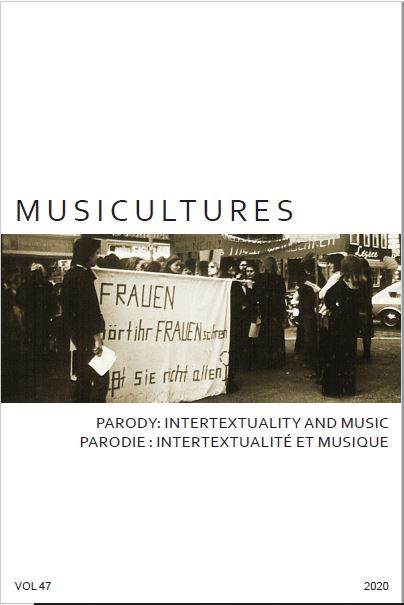Abstract
The villancico de negro is a musical genre that pervaded the Iberian Peninsula and its colonies from the 16th to 18th centuries. Villancicos de negro were pieces written by white composers that depict Black people. In most cases, the Black character was made fun of and represented in a ridiculous manner. In this article, I examine the use of parody in white representations of Black people, which tell us about white imaginaries around Blackness, and how the racial lines were materialized through sound. The construction of whiteness truly surfaces in negotiations around agency in the representation of Black sound.
- The author retains copyright over the work.
- The author grants the journal owner (The Canadian Society for Traditional Music / La Société canadienne pour les traditions musicales) an exclusive license to publish the work.
- The author may post a pre-print or post-print version of the work (see definitions below) on a personal website for up to twelve months after the work is published in MUSICultures. After twelve months, the pre-print version must be replaced with the published version.
- The author may deposit the published PDF of the work in a non-commercial online repository twelve months after the work is published in MUSICultures, or any time thereafter.
- Any such deposit must include a link to the work on the MUSICultures website, e.g., https://journals.lib.unb.ca/index.php/MC/article/view/19996
A pre-print is a work-in-progress—a contribution not yet accepted, or perhaps even submitted, to MUSICultures.
A post-print is the version of a contribution after peer review and acceptance by MUSICultures, with revisions completed.
The published version is the PDF file of a contribution as it appears in MUSICultures.
Please note that academia.edu and ResearchGate.com are both for-profit repositories; authors may not deposit the published PDF of the work in these repositories until after the journal’s embargo period.
For permission to reprint or translate material from MUSICultures, please contact Heather Sparling, General Editor of MUSICultures (heather_sparling@cbu.ca).

